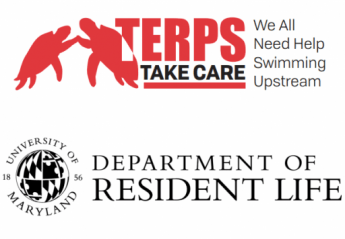Fostering Terp Success has a new case manager! Let’s get to know Chamika Ellis and – with her help – understand a little more about how this program can support students’ basic needs, housing security, transition from foster care, and complicated family systems. Mika and FTS embrace the efforts and energy of providing much-needed resources for students who are surviving and thriving in the face of these challenges.
TTC: Mika, welcome back to UMD as the new case manager for Fostering Terp Success! We’re so happy to see you in this role and to get to chat about the program and the support it provides. I know we spoke to the previous case-manager a few years ago, but I am sure there has been updates. So, to begin: Fostering Terp Success is still a pretty young program that evolves every year. Can you help us all understand what Fostering Terp Success actually is?
- CE: Fostering Terp Success (FTS) provides holistic strength-based, trauma-informed support to UMD students, under the age of 25, who were or are in foster care, who are homeless or at risk of being homeless, and who are without a supportive family system. Our comprehensive team of staff, faculty, alumni, and community partners are committed to assisting students in achieving personal and academic success by helping them access essential social services, navigate challenges, and develop self-advocacy and life skills.
TTC: It really seems like an astounding coalition of people who are all dedicated to supporting students, and I know many of our Terps have found it helpful in a lot of different ways. With that in mind, can you share a little more about some of the specific services and programs FTS offers?
- CE: We provide students with stable on-campus housing during the breaks (Thanksgiving, winter and summer break, spring break), monthly life skills workshops that support intellectual growth, and social connections through our monthly case manager meetings, peer-group activities, and monthly Campus Coach mentor-mentee program. Our Campus Coach program is a volunteer opportunity for UMD faculty and staff to provide monthly, one-on-one wellness support to an FTS student.
TTC: I’m always amazed by how comprehensive and holistic the FTS support system seems to be. Can you tell us a little bit of the history of FTS, and how it came to be?
- CE: Students who experience foster care and/or homelessness are navigating multiple complex systems to access and achieve success in higher education. We recognize these challenges and, under the leadership of Brian Watkins, we brought together key staff from across the university to form the Fostering Terp Success Working Group. Together, they identified ways the university could work to remove barriers and provide support by utilizing campus services and resources and connecting students to important external resources. This has led to tremendous partnerships with the Fostering Change Network (founded by Terp alumna, Shalita O’Neale), Prince George’s County Department of Social Services, and the Latin American Youth Center – Maryland Multicultural Youth Center.
TTC: What a rich history – and a rich network of support. If we can transition more to the microcosm of your experience with FTS and our students – could you tell us one thing you’d like Terps to know about the program?
- CE: We are here to support YOU and your goals. We value your presence and experiences and will do all that we can to help you have a safe, lively, and successful UMD experience!
TTC: Beautiful. Okay, going even narrower in the scope of our questions now: could you share a little about your own wellness routine, and how you care for yourself or let others care for you when – like our students – you find yourself stressed, overwhelmed, or struggling?
- CE: Well for starters, I am a HUGE advocate of mental wellness and want to set a good example so I make sure I prioritize my own mental health by seeing my therapist and journaling. I have found joy in going for walks around my neighborhood and campus. It’s a great way to clear my mind and re-center myself. I also love listening to music and will randomly blurt on song lyrics that make me feel good! Lastly, I love to color and paint! I’m no Picasso, but I think I do a good job!
TTC: You know I love to hear folks advocating for therapy. And honestly – reconnecting to nature, doing something physical to get out of your head, journaling and engaging creatively – this is all great advice! So, just a couple more questions. First of all, how can students access FTS, even just to find out more?
- CE: We provide students with year-around support. Students can access our resources by completing our interest form available on our FTS website.
TTC: Thank you so much, Mika – I think our students will find this information useful, and I’m so grateful you took the time to share it with us. Just one last question to close us out on: is there anything else that you want students to know?
- CE: Regardless of service eligibility requirements, we are happy to connect with all Terps in need to assist folx in securing safe shelter, food, social support, or simply a listening ear.
